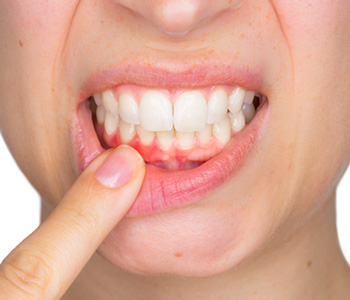Your trusted dentist in Brookline MA explains why gum disease needs to be treated sooner, not later

Gum disease is common. It doesn’t have to be that way. This condition affecting the gum tissue that supports your teeth can be prevented and is also easy to resolve in its earlier stages. Dr. Stan Kovtun and the team at Alpha Plus Dental Center explain why gum disease needs to be treated in Brookline MA now, rather than later. Gum disease is a progressive condition. So, the effects and consequences get worse if the disease is allowed to progress without effective treatment.
Preserve your smile
Early-stage gum disease or gingivitis is associated with several symptoms that can cause discomfort, or make you feel embarrassed about your smile. These problems include: Gums that are a darker red than your “usual”
- Swelling and puffiness
- When you clean your teeth, you may notice blood on your toothbrush and floss, and gum tissue may feel tender to the touch.
- A “toothy smile” as gums recede
- Persistent bad breath
And gum disease can still be lurking even when you don’t have any of these signs – it’s known as a “silent disease” for good reason!
Alpha Plus Dental Center emphasizes routine cleanings and exams to detect the “hidden” symptoms, so steps can be taken to stop the progression of the disease. As plaque spreads below the gum line, mild gingivitis can develop into advanced periodontitis. Patients with advanced gum disease may notice spaces between the gums and the teeth, as well as new spaces between teeth. Gum “pockets” deepen without treatment and can cause irreversible bone loss. Patients with existing restorations or dental prosthetics like dentures may notice changes in how they fit.
Gum disease is the No. 1 reason people aged 35 and older lose their teeth. Tooth loss causes life-altering changes to how you chew, speak, and look. Restoring teeth that are lost also generally requires a bigger investment of time and money than preventive techniques that proactively protect your teeth and gums from disease-causing bacteria.
Whole-body consequences
Research shows periodontal disease may increase the risk of developing heart disease. Researchers believe inflammation may account for the association between the two because both cardiovascular and gum disease are “chronic inflammatory diseases.” Since untreated gum disease can increase inflammation, it’s thought that it can also increase the risk of developing heart disease and other severe health conditions, including diabetes.
Research suggests efficient and effective gum care positively affects blood sugar levels. Likewise, diabetics who keep their blood sugar under control are less likely to have gum problems; uncontrolled diabetes is thought to make patients more susceptible to oral and other types of infections — so much so that periodontal disease is considered as a major complication of diabetes.
Studies further suggest that bacteria in the oral cavity can be aspirated to the lungs, which puts patients at increased risk of developing pneumonia and other respiratory diseases.
Quality of life
Generally, adults and children with poor oral health characterized by gum disease and tooth decay miss more workdays and school days than their healthy counterparts, and performance suffers, too. A University of Southern California study found elementary school-aged children who experienced recent tooth pain were four times more likely to have a Grade Point Average below the median of 2.8. The tooth and gum pain associated with dental disease can affect every aspect of your life, from how well you sleep to how well you eat. When basic needs like sleep and nutrition suffer it gives rise to further problems, including a heightened risk of being involved in on-the-job or road accidents due to fatigue, and nutritional deficiencies due to pain or difficulty when chewing food resulting from a prominent consequence of untreated gum disease: tooth loss.
Family-wide health
When you protect your gums, you may very well protect your family members’ and loved ones’ gums, too. The bacteria responsible for the inflammatory reaction that causes periodontal disease can be spread through saliva. That means if you share your baby’s food or a drink with your partner, he or she can be exposed to the bacteria through saliva. Studies have also suggested that expectant mothers with periodontal disease are at a greater risk of having premature babies. Hormonal changes in pregnancy can also put women who have a history of good oral health at an increased risk of developing gum disease.
Alpha Plus Dental Center looks forward to keeping you and your family member’s healthy, at every stage of life. From deep cleanings and herbal products to ozone and laser therapies, our preventive and restorative gum treatments support holistic wellness. Call (617) 274-8494 to schedule a checkup at our office in Brookline.










